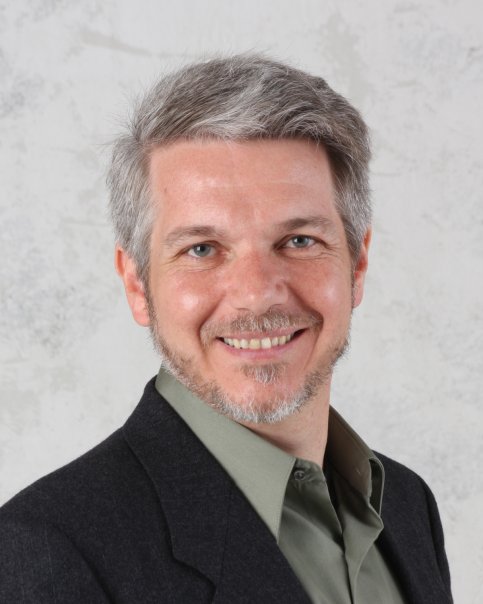This is a turning out to be a big crunch year for Klamath water issues. We had an exceptionally dry winter, and in mid-June the effects are already being felt on the ground. Meanwhile, the Klamath Settlement Agreement, which once seemed as if it would make for a truce in the water wars, is stalled out in Congress, along with an associated settlement that would take out the four hydropower dams along the middle stretch of the river.
Against this backdrop, the U.S. Senate’s Energy & Natural Resources Committee will be holding a hearing on Klamath River water issues early tomorrow morning. A whole passel of locals are going to be on-hand to offer their testimony, including Supervisor Mark Lovelace, Troy Fletcher of the Yurok Tribe, Leaf Hillman of the Karuk Tribe and Hayley Hutt of the Hoopa Valley Tribe. They’ll be joined by a whole list of other affected parties, including upstream farmers, anti-settlement environmental groups, representatives from the states of Oregon and California, and Pacificorps, owner of the hydropower dams.
The hearing starts at 6:30 a.m. our time. You can get a full list of speakers and watch the live stream at this link. Archived video will be provided there after the hearing is over.
You can find below Supervisor Lovelace’s prepared testimony, which he’ll offer up to senators tomorrow. For a deeper write-up of issues, published just as the Klamath Settlement Agreement was reached back in 2009, you can check my NCJ old cover story.
Mark Lovelace’s prepared testimony:
Good morning Chairman Wyden, Ranking Member Murkowski and Members of the Committee. I am Mark Lovelace, 3rd District Supervisor for Humboldt County, California. Our County is a signatory to the Klamath agreements, and I appreciate the opportunity to provide testimony on behalf of our County’s 135,000 residents.
Humboldt County lies on the rugged coast of far-northern California. Virtually the entire 15,751 square-mile Klamath basin drains through Humboldt County for a distance of over 50 miles before it meets the sea. That’s an area larger than nine states, and everything that happens to this river in the upper basin impacts our downstream communities.
The mighty Klamath River has historically been the third-most-productive salmon fishery in the U.S, outside of Alaska. This powerful economic engine drove the coastal economies of northern California and southern Oregon and blessed us with abundant salmon that supported our commercial, sports and tribal fisheries.
Today, however, over 90% of the river’s salmon habitat has been destroyed or blocked by aging dams, with more than 420 miles of historic stream habitat completely inaccessible. Our once-abundant Klamath Chinook salmon have declined sharply, from a historic average of nearly 900,000 to as few as 35,000 or less in some years.
With this decline has come the shuttering of commercial processing facilities, the loss of on-shore jobs and a dwindling fishing fleet, with each boat lost an independent, family-owned business now gone. Downstream communities did not have the benefit of environmental impact studies, economic analyses and Senate hearings before our natural wealth, in the form of water, was taken from us.
The Klamath basin has suffered through decades of conflict, chaos and crisis as a result of these dams, with no stability for either the downstream fisheries or the upper-basin farmers as demand for water often exceeds supply. These conflicts intensified in the late 1980s and early 2000s with endangered species listings, abrupt water shut-offs to irrigators, devastating fish kills and commercial fishing closures.
The Federal government has historically had to pick up the tab for these conflicts, spending hundreds of millions of dollars on drought relief, disaster assistance and lawsuits just to manage an ongoing crisis that leaves no one happy. Left unchecked, the Federal government will likely
spend far more over time than is proposed by these agreements without fixing the underlying problems, and with nothing to show for it in the end.In 2004, Humboldt County joined with some 30 other Klamath stakeholders to begin a five-year negotiation that resulted in “the Klamath Agreements,” a cooperative approach to managing the basin’s resources and permanently fixing these unresolved problems. Beyond removal of the four lower-most dams, these resource-sharing agreements create a comprehensive framework to achieve major watershed restoration and improved flow regimes to end the persistent cycle of crisis, conflict and fiscal waste.
These agreements are the very model of a well-crafted compromise; no one party gets everything they want, but the broad majority gets something they can live with. And the entire basin gets stability.
Humboldt County is committed to supporting the Klamath agreements, maintaining the partnerships we’ve built throughout the basin, and assisting with implementation of these agreements over the next 50 years. I thank you for the opportunity to testify today.
Respectfully,
Mark Lovelace
3rd District Supervisor
Humboldt County

CLICK TO MANAGE